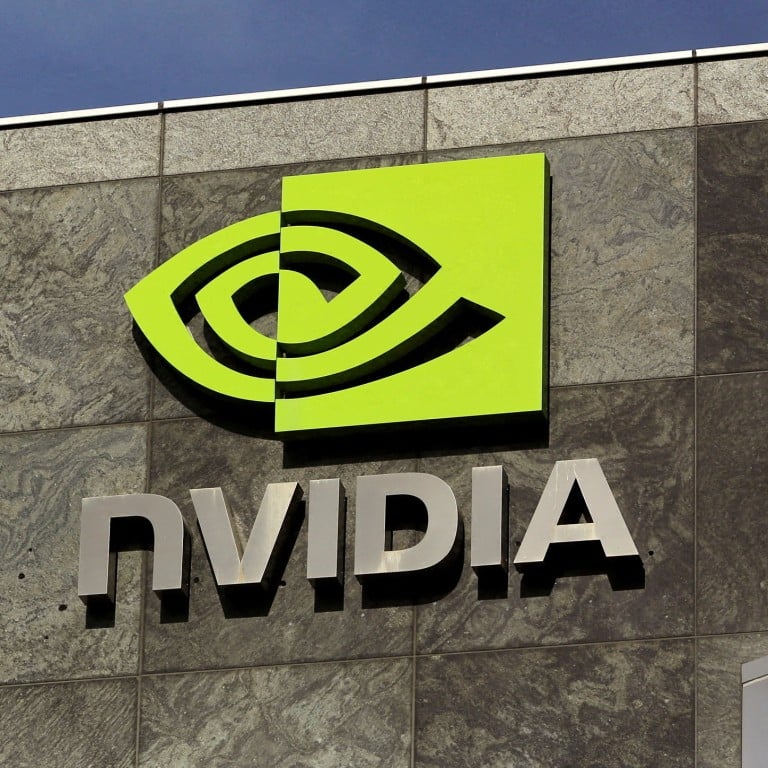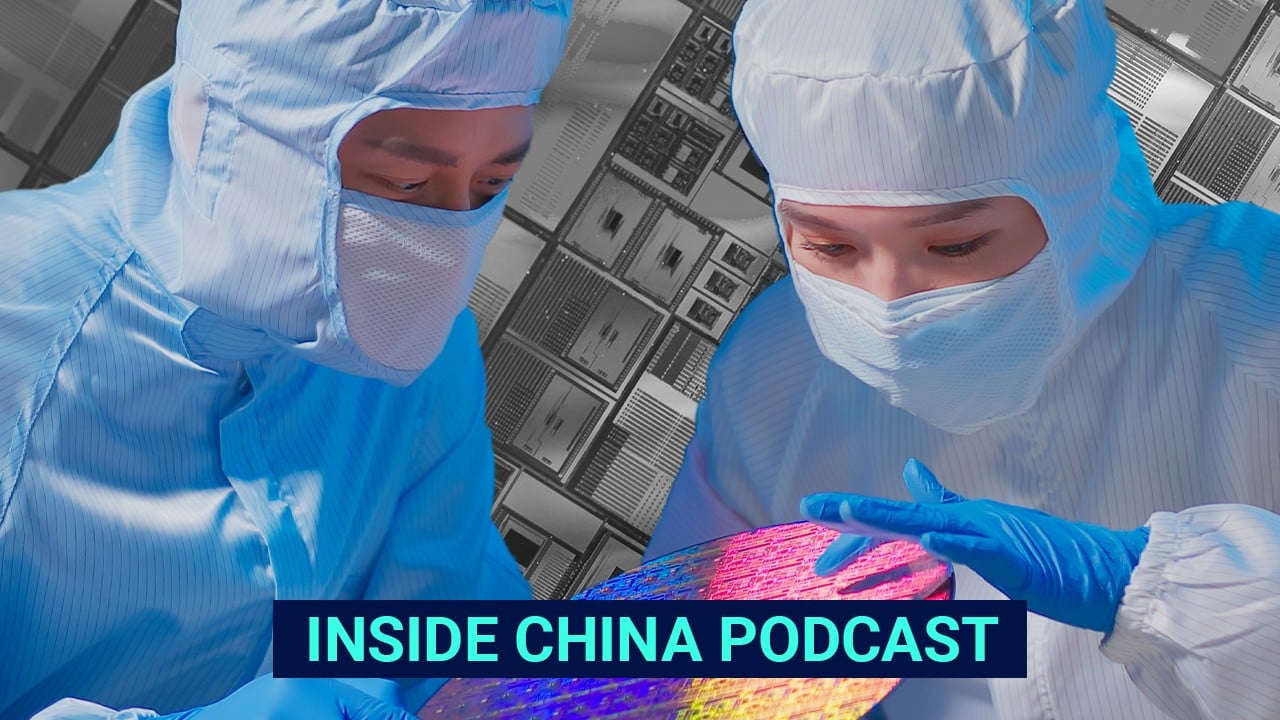
US further restricts China from AI chips to hinder military development
- The curbs aim to hamper China’s military development by closing loopholes in regulations released last October
- The new rules, which change the parameters of affected chips, may significantly impact the US manufacturer Nvidia
The United States released new rules on Tuesday to further restrict China’s access to advanced chips and chipmaking tools, the latest in a series of measures aimed at curbing China’s technological and military advances.
The new rules will reinforce the export controls on semiconductor technology to China the administration unveiled last October.
These updates “are necessary to maintain the effectiveness of these controls, close loopholes, and ensure they remain durable”, according to a statement by the Commerce Department on Tuesday.
“Today’s updated rules will increase effectiveness of our controls and further shut off pathways to evade our restrictions. These controls maintain our clear focus on military applications and confront the threats to our national security posed by the PRC government’s military-civil fusion strategy,” Commerce Secretary Gina Raimondo said.
The latest move comes just weeks before the Apec leaders summit in San Francisco, where officials on both sides have been trying to lay the groundwork for a meeting between US President Joe Biden and Chinese President Xi Jinping.
The updated package of controls change the rules from last October to impose controls on additional types of semiconductor manufacturing equipment, and to expand license requirements for chipmaking equipment to apply to the PRC and Macau, as well as 21 other countries for which the US maintains an arms embargo.
The Commerce Department’s Bureau of Industry and Security (BIS) has also introduced “red flags” and heightened due diligence requirements to help assess whether foreign entities are attempting to evade controls. Companies will now have to operate under a “default assumption of license denial”.
China’s chip imports fall 15% in first nine months of 2023
According to the BIS, the rules aim to address intelligence reports that highlight “countries of concern” exploiting non-embargoed nations to gain access to restricted technology.
The new rules appear to have a significant impact on the US company Nvidia, due to a change in chip parameters intended to affect a greater number of chips. The AI chip maker was restricted from selling its top-end A100 and H100 graphics processing units to China since last year.
Responding to that, the chip giant moved to make a version of its AI chips for the Chinese market called the A800 that fell below performance thresholds outlined by the Commerce Department.
Having had a year to monitor the efficacy of the original restrictions, including Nvidia’s ability to “design around” them, US government officials know better what to zero in on, said Paul Triolo, an expert on China and technology policy at the Washington-based consultancy Albright Stonebridge Group.
They “have gotten a little more down in the weeds on how do you measure” computational capacity of chips, he said.
The rules released on Tuesday eliminate the communication speed limits and focus on computing performance, which will have the effect of halting sales of Nvidia’s A800 and H800 chips for the China market, according to a senior administration official.

In a statement, Nvidia, based in Santa Clara, California, said it was not anticipating significant near-term financial impact from the new restrictions.
“We comply with all applicable regulations while working to provide products that support thousands of applications across many different industries,” Nvidia said.
The Semiconductor Industry Association, the sector’s trade group, however, said that “overly broad, unilateral controls risk harming the US semiconductor ecosystem without advancing national security as they encourage overseas customers to look elsewhere”.
“Accordingly, we urge the administration to strengthen coordination with allies to ensure a level playing field for all companies,” the association added.
And the Information Technology and Innovation Foundation think tank said that limiting sales of chips to China risked significantly reducing allied semiconductor competitiveness.
“US firms will lose the most profitable part of their market, significantly reducing profits that otherwise would be invested in research and development for the next generation of chips,” Robert Atkinson, the foundation’s president, said.
New US rules on AI chip exports ‘aim to stop workarounds on China sales’
Also on Tuesday, BIS added two China-based companies, Biren Technology and Moore Threads, to the list of entities subject to export bans.
The bureau said the companies, both founded by former employees of Nvidia’s China unit, were involved in the development of advanced computer integrated circuits that had the potential to enhance AI capabilities that could facilitate the development of weapons of mass destruction, advanced weapons systems and sophisticated surveillance applications.
Biren and Moore each issued statements opposing their inclusion on the list. Biren said it would “appeal to relevant US government departments” while Moore said its operations “strictly abided by the laws and regulations of relevant countries and regions” and added that it was “communicating with all parties and evaluating the impacts” of the listing.
It was Huawei Technologies’ latest breakthrough for its advanced seven-nanometer processor in its new phone released in August that sparked concerns in Washington over the effectiveness of US chip technology restrictions.
The US initiated an investigation into Huawei’s latest phone. Raimondo said during a hearing last month in the House of Representatives that “we don’t have any evidence that they can manufacture seven-nanometer at scale”.
According to the Commerce Department statement, the new controls were intended to address China’s efforts to obtain chip manufacturing equipment essential to producing advanced integrated circuits needed for the next generation of advanced weapon systems.
It was also intended to impede efforts to get high-end advanced computing semiconductors necessary to enable the development and production of technologies such as artificial intelligence (AI) used in military applications.
Advanced AI capabilities – facilitated by supercomputing, built on advanced semiconductors – raised US national security concerns because they can be used to improve the speed and accuracy of military decision making, planning, and logistics. They can also be used for cognitive electronic warfare, radar, signals intelligence, and jamming.
US eyes more AI chip curbs on Chinese companies to close loophole
Among other earlier measures to restrict China’s access to critical technologies, Biden – citing national security concerns – signed an executive order in August prohibiting some new US investment in key Chinese tech industries including semiconductors and microelectronics, quantum information technologies and certain artificial intelligence systems.
But some analysts have expressed concern that the new set of rules might simply motivate China’s companies to innovate on their own.
Triolo, for example, said that US controls “have massively incentivised the Chinese system … to invest in [its] domestic capabilities”.
“For example, [since 2022] toolmakers in China have become fully vertically integrated with the foundries in a way they never had before October 7, and they were already taking market share,” he said, referring to when the Biden administration first unveiled its chip export controls.
Additional reporting by Robert Delaney




